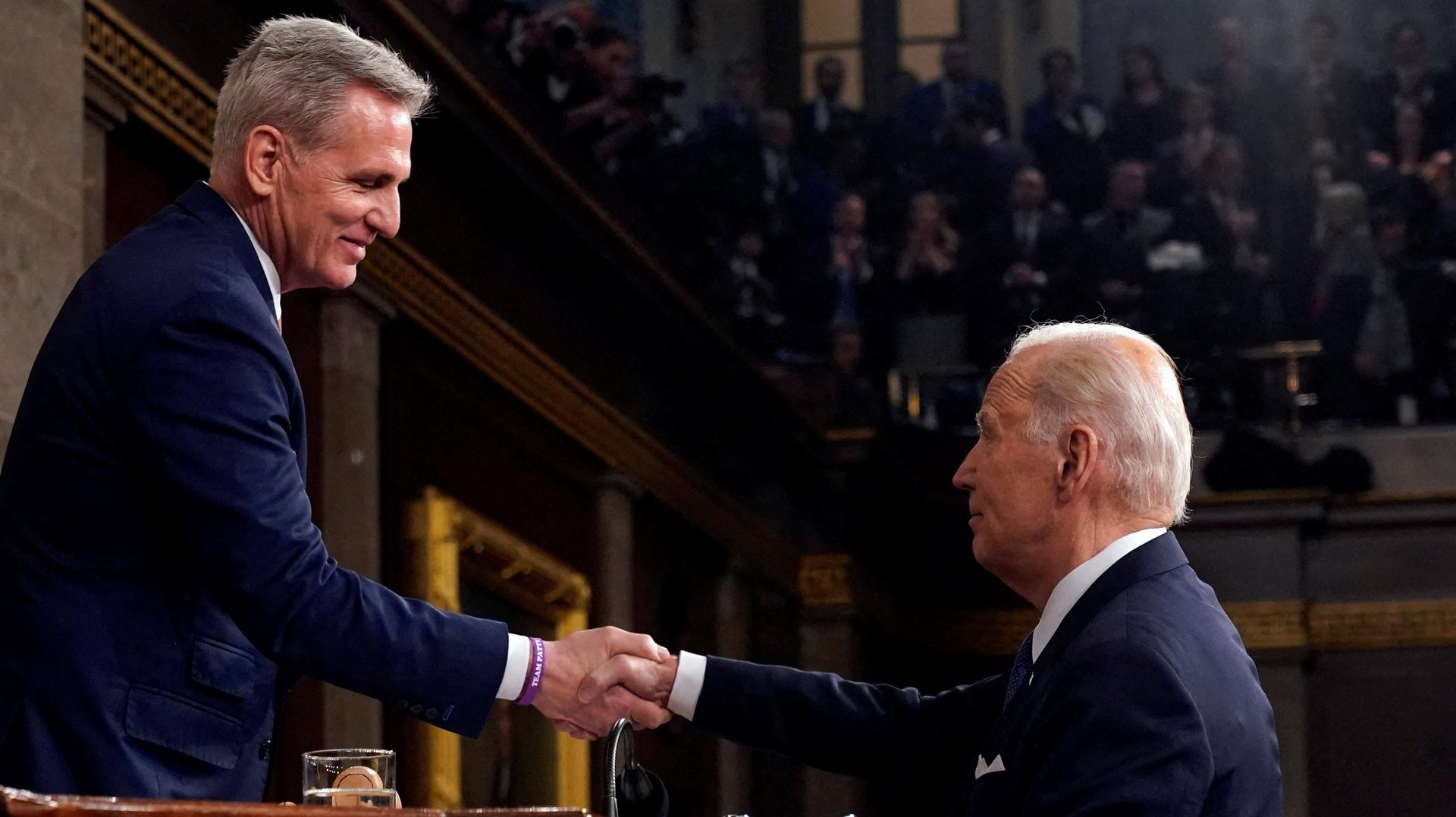Biden has struck a debt ceiling deal with Republicans to avoid a default
The US president has the deal is ready to move to Congress for a vote

It appears that the squabbles over the US debt ceiling are close to being thrown out of the window.
US president Joe Biden and House speaker Republican Kevin McCarthy have reached an agreement (pdf) to suspend the $31.4 trillion debt ceiling until Jan. 1, 2025. Biden said yesterday (May 28) that the deal was now ready to move to Congress for a vote.
This comes after Janet Yellen, the US treasury secretary said on Friday (May 26) that the government would default if Congress did not increase the ceiling by June 5. Earlier, Yellen had said a default could happen as early as June 1.
“The agreement prevents the worst possible crisis. Which means no one got everything they want. But that’s the responsibility of governing. I strongly urge both chambers to pass that agreement,” Biden told reporters at the White House yesterday, having finalized the deal.
Similar views were voiced by McCarthy, too.
“We know anytime we sit and negotiate with two parties, that you got to work with both sides of the aisle. So it’s not 100% of what everybody wants, but when you look the country is going to be stronger,” he told reporters at the US Capitol yesterday.
Details of the “bipartisan deal”
While the agreement would allow the US government to pay its bills until January next year, the discretionary spending on non-defense items, money that goes to housing, education, road safety, and other federal programs, would be capped at $936 billion in 2023 and 2024, the CNN reported yesterday, citing sources. After that, it would increase by only 1%.
Keeping this figure roughly flat for two years is equal to a spending cut, considering inflationary impacts, the Democrats have said.
Moreover, spending on non-defense sectors, excluding military veterans’ healthcare, would be slashed to 2022 levels. On defense, it is likely to increase to around $885 billion, 11% more than what was allocated in the latest budget.
One of the key issues in the annual budgeting process is special funding for Internal Revenue Service (IRS). The agreement secured $80 billion for a decade to help the IRS enforce the tax code for affluent citizens in the US under last year’s Inflation Reduction Act. This would generate $200 billion in additional revenue over the next 10 years.
Both sides, further, are expected to agree to clinch unallocated relief funds—between $50 billion and $70 billion—linked to the Covid-19 pandemic. The exact amount available is unclear, but the Congressional Budget Office has estimated it’s about $30 billion, CNN reported.
